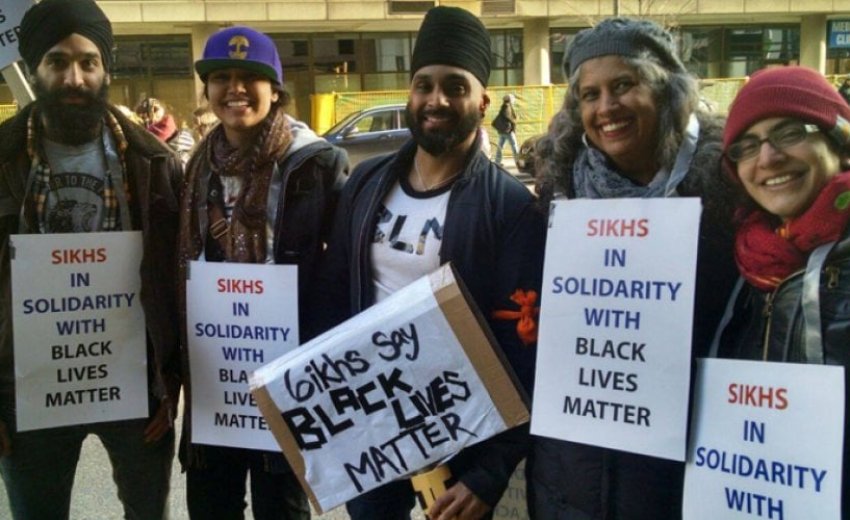Every year, the Sikh community in the Lower Mainland gathers at the Vancouver Art Gallery to mark the anniversary of the heavily armed invasion of the Sri Harimandir Sahib Gurudwara in Punjab by the Indian military. Sri Harimandir Sahib is also known as the Golden Temple.
The June 1984 atrocities that led to the deaths of tens of thousands of Sikhs are imprinted in the collective memory of members of the Sikh Diaspora. The military codename for this operation was "Operation Bluestar," under which one of the most heinous acts of state-sponsored brutality against the Sikh minority in India was carried out.
Historic events that led to tensions that sprung up in 1984
Before British colonisation, Punjab was a Sikh-controlled territory. In 1947, the British partitioned the province, dividing it between the newly independent nations of Pakistan and India. In the decades that followed, Sikh leaders conducted several civil rights marches across Punjab in an effort to secure rights for the Punjabi Sikh population, which they thought had been disregarded, while the Indian government sought to strengthen its influence.
Operation Blue Star
Prime Minister Indira Gandhi initiated Operation Bluestar, labelling Sikh leaders in the Golden Temple complex as militants who had to be removed by force, bringing these tensions to a head. Armed with heavy artillery and tanks, troops rushed to the centre of the Sikh Temple and started the fire, resulting in the death of thousands of Sikhs, the ruin of historical structures, and the loss of holy documents and relics.
In the days following the attack more than three decades ago, tens of thousands, possibly as many as 30,000 Sikhs, flocked to the streets of Vancouver to protest. Both Operation Bluestar and the demonstrations were extensively reported by local and national media outlets.
Atrocities on Sikhs
The Anti-Sikh Riots of 1984, also known as the 1984 Sikh Massacre, were a series of organised pogroms against Sikhs in India that took place in the aftermath of the assassination of Indira Gandhi at the hands of her Sikh bodyguards. The government claims that approximately 2,800 Sikhs were killed in Delhi and 3,350 across the country; however, independent sources indicate that the number of deaths was closer to 8,000–17,000 people.
The government stated that 20,000 people had fled the city in the aftermath of the pogroms, and the People’s Union for Civil Liberties estimated "at least" 1,000 displaced people. Sikh neighbourhoods in Delhi were among the areas hit the hardest by the violence. There was widespread consensus among human rights organisations and publications across India that the massacre was premeditated. The highest authority in Sikhism, known as the Akal Takht, has deemed the deaths to be a kind of genocide.
The play "A Vancouver Guldasta," which was written a few years ago, was centred on the experience that a Sikh family had while watching media stories of the attacks on the Golden Temple from their home in South Vancouver.
The events of 1984 were a tiny blip on the radar of the vast majority of white Canadians who were present at 'A Vancouver Guldasta' and could recollect the history of the gathering. People would make comments such as, "I wondered what was going on in those days," "I recall driving by that," or "Wasn't that about the Air India bombing?" Despite the extensive media coverage that the attack and protests received, as well as the degree to which members of their communities were impacted, the actions that were taken in the streets did not become ingrained in the collective memory of residents of the Lower Mainland for whatever reason.
The parallel between Black Lives Matter & 1984 Sikh Massacre
The Black Lives Matter demonstrations that took place across North America coincided with a period of intense emotion for the Sikh community mourning for Operation Bluestar. It was encouraging to see talks about the anti-black and anti-indigenous attitudes that persist in communities of colour, in addition to the acts of solidarity that have been taken in the face of the recent violence. Black protestors led the way as people once more take to the streets to demand justice.
Paneet Singh, the author and director of ‘A Vancouver Guldasta’, says that acting consciously in the context of our current political climate is essential to paying respect to those who lost their lives during Operation Bluestar. This calls for the Sikh community to not only keep up our activism to bring attention to the state-sponsored violence in India, but also to stand in solidarity with black protesters today, amplify their voices through our networks and communities, and take responsibility for the behaviour that supports anti-black prejudice.
However, while we empathise with the protesters and see echoes of the events that occurred in 1984 today, we cannot simply draw an equivalency between police violence against the black community and the happenings in 1984. Each individual's experiences must remain distinct from one another; hence, we need to give careful attention to the positions we take, as well as the words and deeds we perform.
Within our communities, each of us is fully conscious of the anti-black behaviours that we engage in and help perpetuate. A few concrete instances may be found in South Asian cultures, and these include colourism, casteism, behaviour based on the model minority stereotype, and appropriation for commercial gain.
To pay respect to the Sikhs who gave their lives during Operation Bluestar and to those who marched in their remembrance, it is incumbent upon us to fortify our inter-cultural alliance. It is important that the cries for justice heard in our communities do not become a thing of the past.
